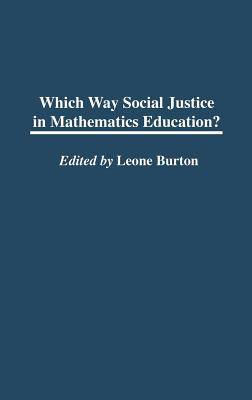
- Retrait gratuit dans votre magasin Club
- 7.000.000 titres dans notre catalogue
- Payer en toute sécurité
- Toujours un magasin près de chez vous
- Retrait gratuit dans votre magasin Club
- 7.000.0000 titres dans notre catalogue
- Payer en toute sécurité
- Toujours un magasin près de chez vous
Description
This contributed volume explores equity and social justice within the field of mathematics education. In part one, Helga Jungwirth's introductory chapter provides a strong theoretical overview that is based in actual classroom behaviors and a typology that classifies the various interpretations found within this volume. Also in part one, Laurie Hart discusses developments in equity research in the United States. Part two focuses on results of studies about social justice and their impact on learning in mathematics classrooms in various parts of the world. For example, in a chapter on Peru, social justice does not just encompass gender, but also inequalities in opportunities to learn, such as problems of resources, living and social conditions, communal demands and language needs. And, part three focuses on computers as a resource to mathematics teaching.
The contributors raise several important social justice issues which have previously remained unresearched. Although there are a number of chapters specifically dealing with gender, many of the authors use one of the following strategies: their gender-specific questions are set in a wider socio-cultural context, they challenge what have threatened to become false orthodoxies, or they raise other important issues. These other issues include the meaning of democratic citizenship for mathematics classrooms, the links between parents and children learning mathematics, and the preconceptions of some teachers of underprivileged students in Australia. Other chapters explore different forms of classroom communication, participation, and assessment. The pieces on computers state that there is still not enough research to conclude whether computers in the mathematics classrooms are supportive of, or detrimental to, the learning of all students. The one thing on which every author in this volume does agree is that social justice in mathematics education has still not been attained, but that we must strive toward it to improve educational practices and society in general.Spécifications
Parties prenantes
- Auteur(s) :
- Editeur:
Contenu
- Nombre de pages :
- 344
- Langue:
- Anglais
- Collection :
Caractéristiques
- EAN:
- 9781567506808
- Date de parution :
- 28-02-03
- Format:
- Livre relié
- Format numérique:
- Genaaid
- Dimensions :
- 163 mm x 243 mm
- Poids :
- 657 g

Les avis
Nous publions uniquement les avis qui respectent les conditions requises. Consultez nos conditions pour les avis.






